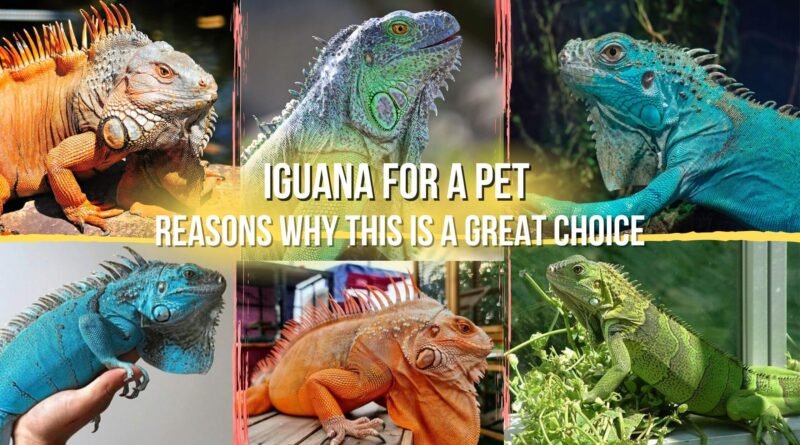Reasons why getting an iguana for a pet makes a great choice
Iguanas are often seen as exotic pets, but they can actually make great companions. Here are a few reasons why you should consider getting an iguana for a pet.
Why having an iguana for a pet is a great choice
- They’re low maintenance. Iguanas are relatively low-maintenance pets. They don’t need to be walked, and they can stay in their cage most of the time. As long as you provide them with a warm environment and plenty of food and water, they will be happy.
- They’re interesting to watch. Iguanas are fascinating creatures to watch. They are very active, and they love to explore their surroundings. Watching them can be entertaining for both children and adults.
- They can bond with their owners. Iguanas can actually bond with their owners. If you spend time with them and handle them frequently, they will start to recognize you and feel comfortable around you. This means that they can make great companion animals.
5 Fun facts about Iguanas
Iguanas are one of the most popular reptiles kept as pets. They are relatively low maintenance, and can make great furry (or scaly) friends! Here are 5 fun facts about iguanas that you may not know.
1. Iguanas come in many different colors! Common colors include green, black, and red. Some iguanas can even change color depending on their mood or the temperature of their surroundings.
2. Iguanas can grow to be quite large! The average adult iguanas are about 6-7 feet long, although some have been known to grow up to 10 feet in length.
3. Iguanas are excellent swimmers! In the wild, they often live near water sources like rivers and lakes, and are known to enjoy taking a dip from time to time.
4. Iguanas are native to Central and South America, but can now be found all over the world. This is thanks in part to the pet trade, as well as their ability to adjust to a wide variety of climates.
5. Captive iguanas can live for a long time – up to 20 years in captivity, and even longer as wild animals! With proper care, your temperament pet iguanas could be a part of your family for many years to come.
Iguana species to have as a pet
Before you bring an iguana as a pet into your home, though, there are a few things you need to know. For starters, there are many different species of iguanas, each with their own unique appearance and set of behaviors. Now, we’ll give you a brief overview of the different types of iguanas so that you can choose the perfect one for your home.
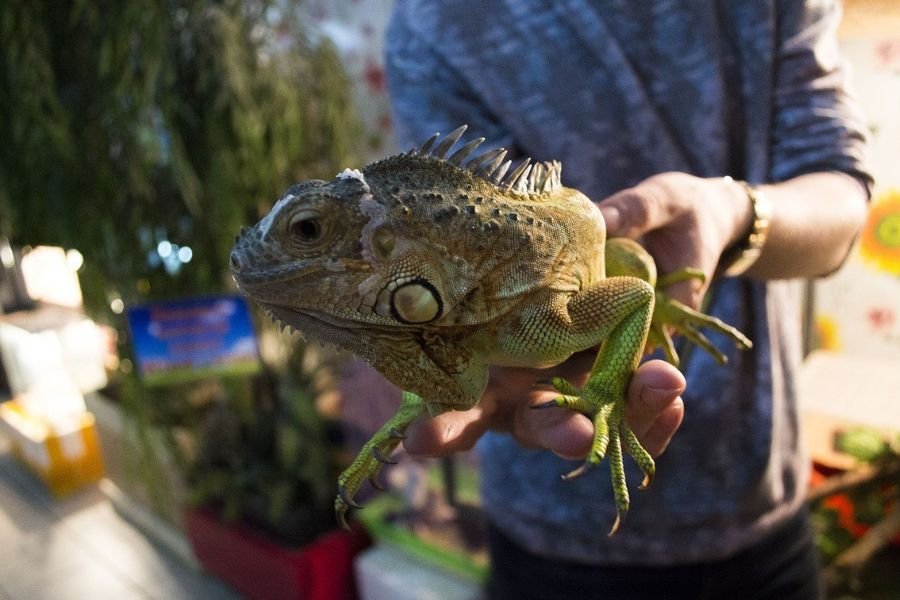
Green Iguana (Iguana iguana)
The green iguanas are perhaps the most popular type of pet iguana. As its name suggests, this species is characterized by its green coloration. Green iguanas can grow to be quite large, up to 6 feet in length from head to tail! They are also known for their long fins and spines. Green iguanas typically have a lifespan of 10-15 years.
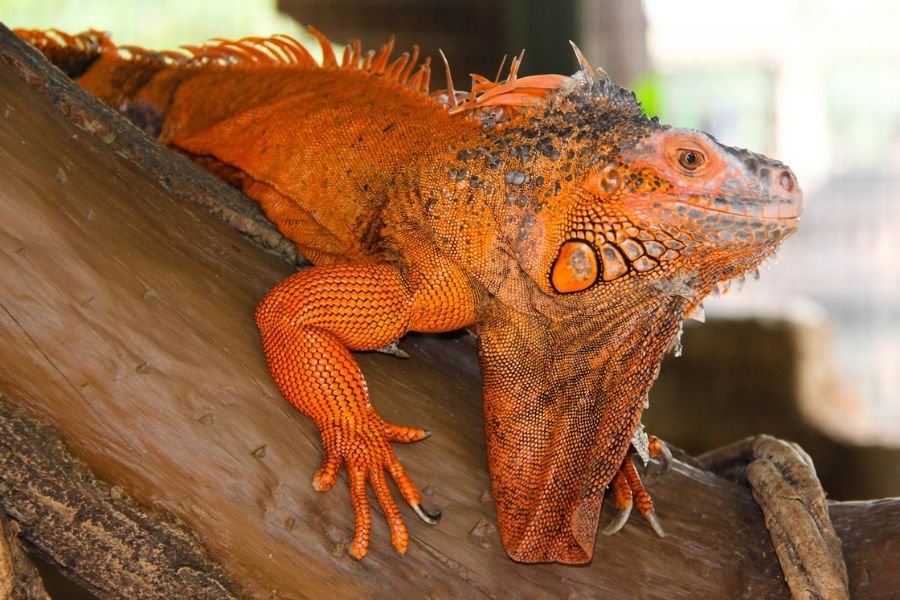
Red Iguana (Iguana pigua)
The red iguana is another popular pet option. Like the green iguana, it can grow up to 6 feet in length and has a lifespan of 10-15 years. The red iguana gets its name from its reddish-orange coloration and patterns. Red iguanas also have long fins and spines. One thing to note about red iguanas is that they can be quite aggressive, especially when they reach adulthood. As such, they may not be the best choice for first-time reptile owners or as a pet iguana.
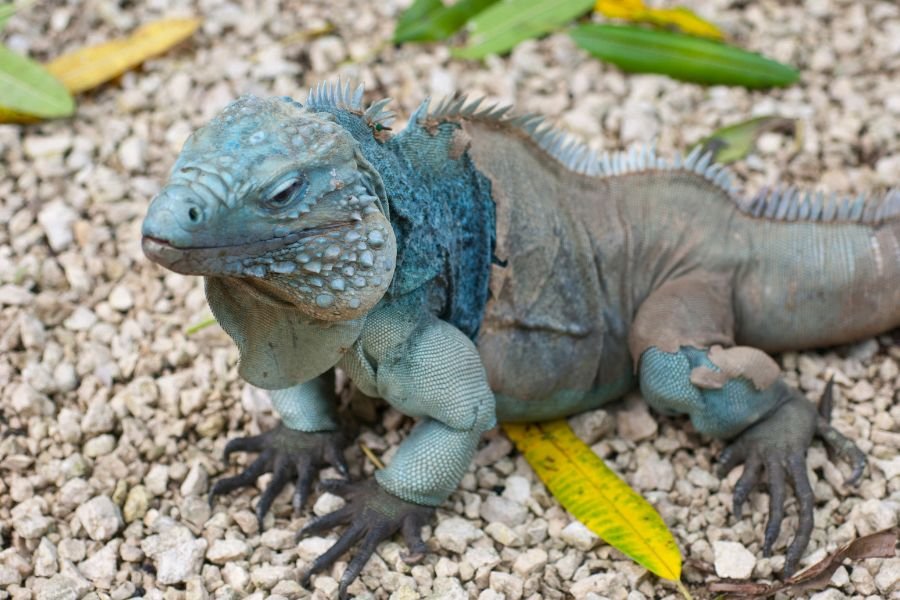
Blue Iguana (Iguana caerulea)
Curious about how big do blue iguanas get? The blue iguana is one of the largest species of pet iguanas, reaching up to 7 feet in length from head to tail! Blue iguanas get their blue iguana names from their bright blue coloration. Like other iguanas, they have long fins and spines. One thing to keep in mind if you’re considering a blue iguana is that they require a very specific diet and habitat. As such, they may not be the best choice for beginner reptile owners.
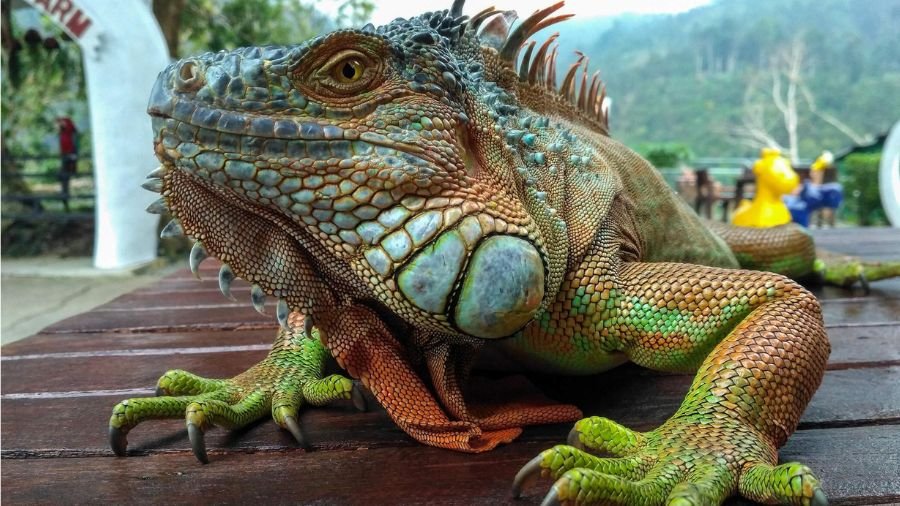
Conclusion – are iguanas good pets?
A baby iguana or adult iguana makes great pet reptiles for enthusiasts of all experience levels. If you’re thinking about adding an iguana to your family, be sure to do your research first – these fascinating creatures require specific care and housing requirements in order to stay healthy and happy. Thanks for reading, and we hope you learned something new about iguanas today!

